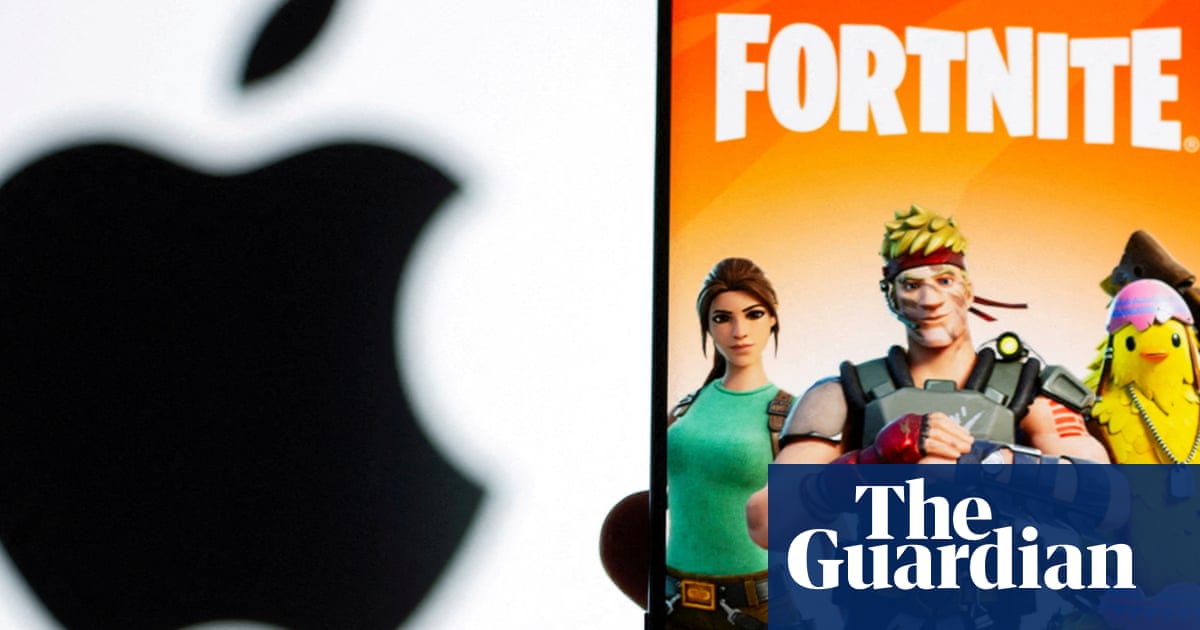The popular video gameFortnitehas returned to theiPhoneapp store in the US, ending a prolonged exile that was triggered by a legal showdown over the fees thatApplehad been collecting for years through a payment system that the tech giant has been forced to change.
Fortnite, one of the world’s most popular games, hailed its app’s long-awaited restoration to the iPhone and iPad in a Tuesday post, marking the first time it will be available on those devices since it was ousted in 2020 for trying to avoid the 15% to 30% commissions that Apple collects on in-app transactions.
“Fortnite is BACK on the App Store in the U.S. on iPhones and iPads … and on the Epic Games Store and AltStore in the E.U! It’ll show up in Search soon!” read atweetfrom the game’s official account. As an upshot of its legal war with Apple, Epic established its own digital store.
The video game, which features virtual gunfighting on a digital island, is coming back to theiPhonejust a few days after its parent company, Epic Games, filed a motion asking a federal judge to order its return as part of a civil contempt of court finding issued against Apple late last month. Last week, the game went dark on Apple devices the world over, and it remains unavailable on them in many countries.
In a brief statement filed in court late on Tuesday,Applesaid the dispute that had been keeping Fortnite off its iOS software for the iPhone had been resolved. The Cupertino, California, company did not immediately respond to a request for further comment.
The legal wrangling is all part of a bitter feud that is still boiling. Epic filed a lawsuit alleging Apple had turned its app store into an illegal monopoly – a claim that it lost under a 2021 ruling made by a federal judge after a month-long trial.
Although she decided Apple was not breaking antitrust laws, US district judge Yvonne Gonzalez Rogers ordered the company to loosen control over in-app payments and allow links to other options that might offer lower prices.
After exhausting an appeal that went all the way to the US supreme court, Apple last year introduced a new system that opened the door for links to alternative payment options while still imposing a 27% commission on in-app transactions executed outside its own system.
Epic fired back by alleging Apple was thumbing its nose at the legal system, reviving another round of court hearings that lasted nearly a year before Gonzalez Rogers delivered her stinging rebuke that included a ban on collecting any kind of commission on alternative payment options.
Sign up toTechScape
A weekly dive in to how technology is shaping our lives
after newsletter promotion
That appeared to clear the way for Fortnite’s return to the iPhone and iPad, but Epic last week said the video game was still being blocked by Apple. After Apple contended that keeping Fortnite was still permissible while it pursues an appeal of Gonzalez Rogers’s contempt ruling, Epic forced the issue by asking the judge for another order that would make clear the video game should be allowed back on the iPhone and iPad.
Gonzalez Rogers on Monday asked why Apple was still blocking Fortnite without an order from the appeals court authorizing that action. She scheduled a 27 May hearing in Oakland, California, to hear Epic’s latest motion while noting “Apple is fully capable of resolving this issue without further briefing or a hearing.”
